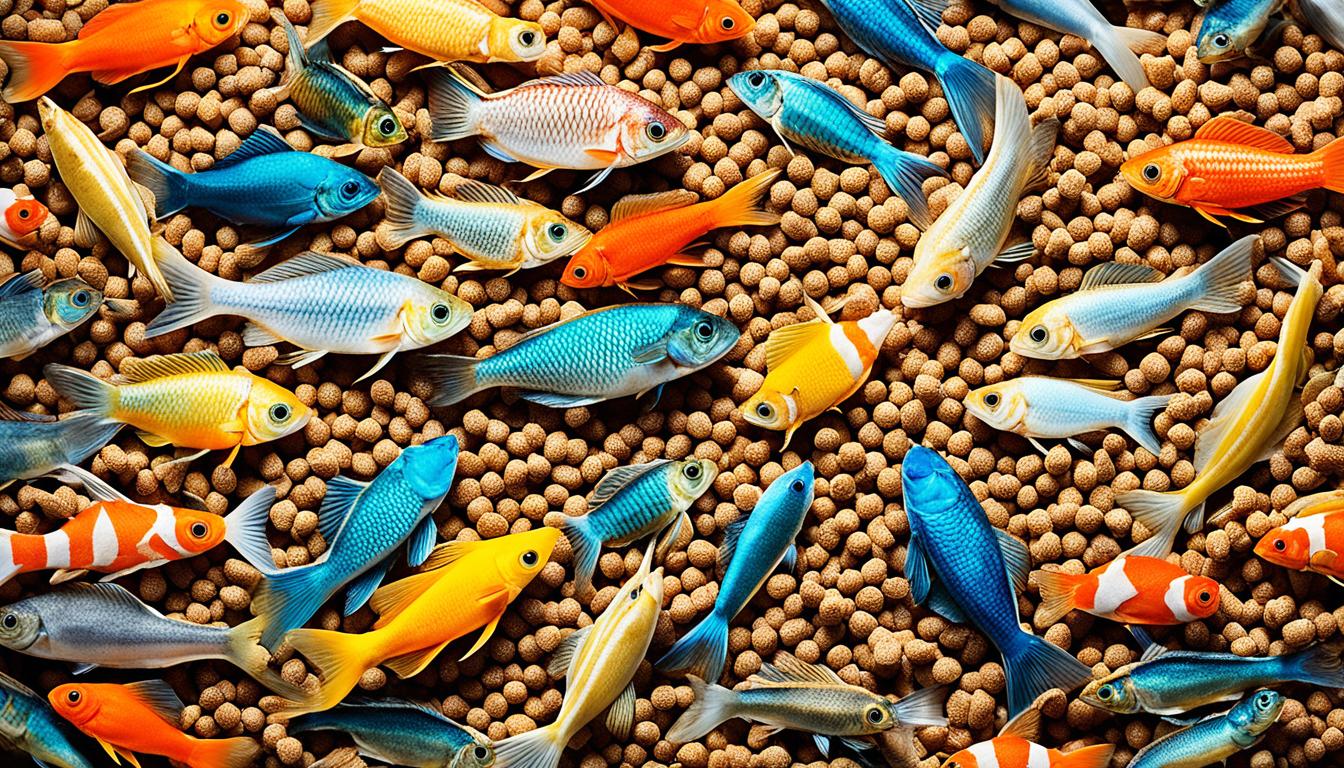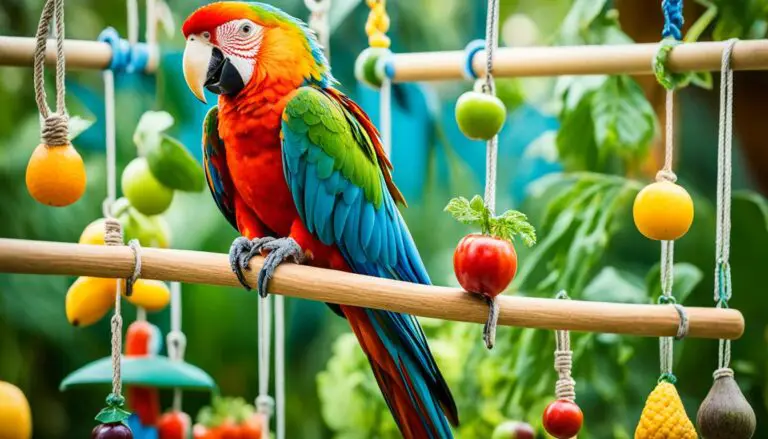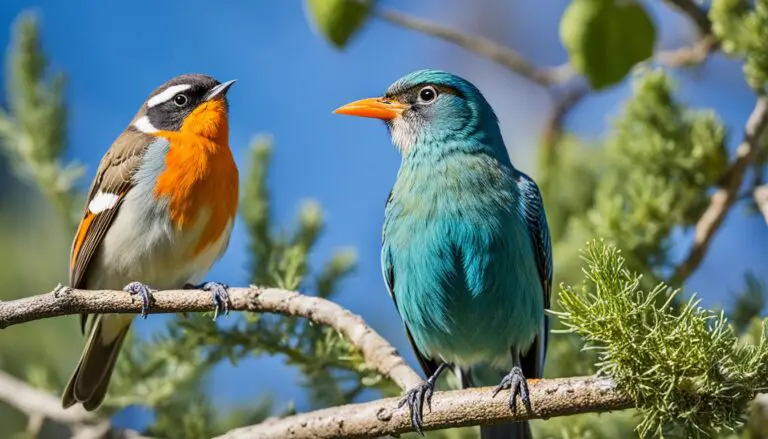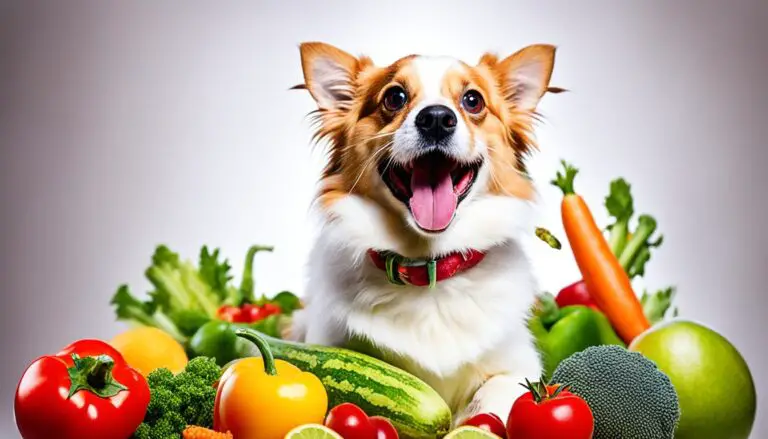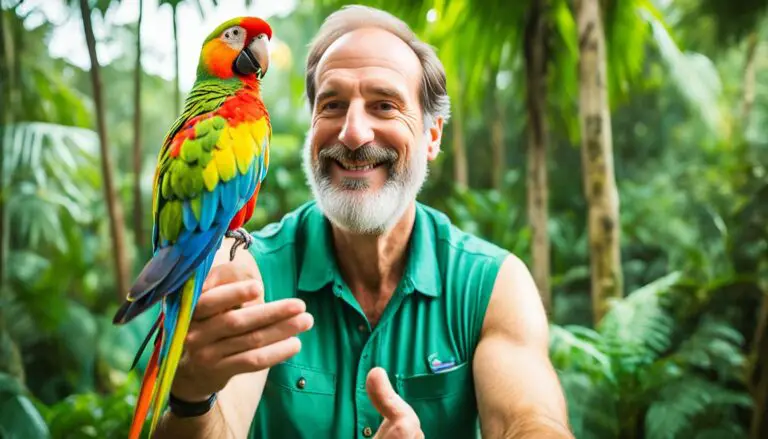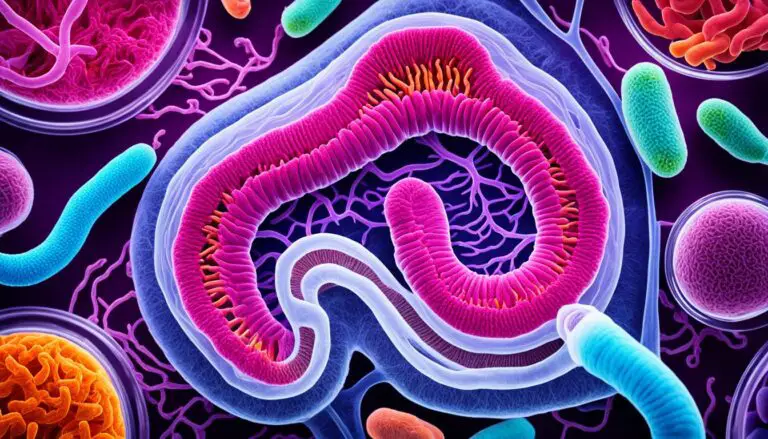Nutritional Requirements for Aquatic Exotic Pets
Do you know that good nutrition is key for the health of aquatic exotic pets? Whether it’s a beautiful fish tank or a cool terrarium with unique reptiles, the right food is vital. It helps them grow, stay strong, and live longer.
Key Takeaways:
- It’s crucial to know what food your underwater friends need for good health.
- Each type of aquatic pet has different food needs. They depend on their natural diet, how their mouth and stomach work, and what nutrition studies say.
- Don’t forget to talk to a vet who knows about exotic pets. They can help you make a food plan that’s just right.
- Using top-notch food is a must to keep your pets healthy. Make sure they don’t miss out on any important nutrients.
- Watch how much your pets eat, drink, and their body size. This helps tell if they are healthy.
Factors Affecting Nutritional Formulation for Aquatic Exotic Pets
Many things influence how we make food for aquatic exotic pets. This includes their eating habits, health, and size.
Usually, we make their diets similar to domestic animals that are similar. But remember, these guidelines are flexible, not strict rules.
Dietary preference is key when making food for exotic pets. We try to meet each pet’s unique needs. This depends on what the pet likes to eat and how they eat.
For aquatic pets like reptiles and amphibians, making a diet plan is harder. This is because there are few known models to follow. Their metabolism also changes, which makes it more challenging.
“As aquatic exotics have specific dietary needs and feeding habits, it is essential to develop nutritionally balanced diets that cater to their unique requirements.” – Dr. Rachel Johnson, Exotic Pet Nutrition Expert
Influential Factors in Nutritional Formulation
Here are key points to think about when creating diets for aquatic exotics:
- Exotic Pet Dietary Needs: Understanding what each exotic pet species needs is vital for a good diet.
- Exotic Pet Feeding Habits: Designing a diet that fits the way they naturally eat is important too.
- Feeding Requirements for Aquatic Exotics: We need to think about what they eat, how often, and what way they prefer to eat.
All these aspects are important. They help us make diets that meet the special needs of aquatic exotics. This keeps them healthy and happy.
| Factors | Explanation |
|---|---|
| Exotic Pet Dietary Needs | Understanding the specific nutritional requirements of the exotic pet species is crucial in providing a well-balanced diet. |
| Exotic Pet Feeding Habits | Knowing the feeding habits of the exotic pet species helps in designing a diet that mimics their natural feeding behaviors. |
| Feeding Requirements for Aquatic Exotics | Considerations such as the type and size of prey, feeding frequency, and feeding methods play an important role in the nutritional formulation. |
By focusing on these factors, owners of aquatic exotic pets can make sure their pets get the right diet. This diet supports their health and energy.
Importance of High-Quality Food for Aquatic Exotic Pets
High-quality food is essential for the health of exotic aquatic pets. A balanced diet supports their growth and vitality. It provides the nutrients needed for the unique conditions of their water environment.
It’s critical to check food for spoilage before feeding. Spoiled food can harm your pet’s health, causing issues like digestive problems or infections. Make sure their food is fresh and safe to eat.
“Feeding aquatic exotic pets with a nutritionally complete commercial product or an in-house mixture is highly recommended. These specialized diets cater to the specific dietary requirements of each species, ensuring that they receive the optimal diet for exotic aquatic pets.”
For some pets, like parrots, a diet of pellets is best to avoid nutritional imbalances from selecting seeds. Specially made pellets provide all the important nutrients they need.
Choosing or making the right food is crucial for exotic pets. They need specific diets. Talk to a vet who knows about exotic pets to discover the best food for yours.
Benefits of High-Quality Food for Aquatic Exotic Pets
Good food has many benefits for aquatic exotic pets:
- It provides all the nutrients your pet needs to grow and stay healthy.
- It helps with digestion, reducing the chance of stomach problems.
- Some foods can make your pet’s colors brighter, showing off their beauty.
- It boosts their immune system, keeping them safe from illnesses.
Sample Diet Plan for Aquatic Exotic Pets
| Time | Food | Notes |
|---|---|---|
| Morning | High-quality commercial fish pellets | Make sure the pellets are right for their type and size. |
| Afternoon | Fresh vegetables (e.g., spinach, kale, or peas) | Giving them different veggies adds more nutrients and fun to meals. |
| Evening | Frozen or live food (e.g., brine shrimp or bloodworms) | These treats help mimic what they would eat in the wild. |

Keeping a high-quality diet up needs work, but it’s key for your pets’ health and life. Always talk to a vet to know if their diet is right. With the best food and care, you can make your pets happy and healthy for a long time.
Common Nutritional Deficiencies in Aquatic Exotic Pets
If aquatic exotic pets don’t get the right food, they might lack important nutrients. It’s important to know what these pets need. Then, make sure they get a diet that keeps them healthy.
Here are some key deficiencies in aquatic exotic pets:
- Calcium and Vitamin D3: Reptiles and birds need a lot of calcium for strong bones and making eggs. Vitamin D3 helps them use the calcium. Not enough of these nutrients can cause their bones to become weak and brittle.
- Vitamin A: Vitamin A is needed for clear vision, growth, and fighting diseases. Without enough of it, pets can have trouble seeing, skin problems, and a weaker immune system.
- Thiamin: Thiamin, or vitamin B1, is vital for turning carbs into energy and keeping nerves healthy. A lack of thiamin can cause problems in the nervous system, make pets lose their appetite, and lose weight.
- Vitamin E: Vitamin E fights cell damage as an antioxidant. Too little vitamin E can make pets’ muscles weak, affect their ability to have babies, and lower their immune system defenses.
It’s crucial to offer diets that tackle the specific needs of aquatic exotic pets. Working with a vet who knows about exotic pet nutrition is a good idea. They can help you create the perfect diet for your special pet.

Feeding Guidelines for Aquatic Exotic Pets
Feeding exotic aquatic pets right is key to their health. With the right guidelines, you can make sure your pets are healthy. Good nutrition is crucial.
Provide good quality food
Choosing top-notch food is important. For your pet’s meals, pick food tailored for their kind. This food is packed with the nutrients they need. It’s also great to mix in live or frozen food for fun and health.
Avoid cafeteria-style feeding
Don’t mix too many types of food. This can cause your pets to pick and choose, which isn’t good. Stick to a balanced diet tailored to them. Check the serving sizes and how often to feed them based on what the food labels say.
Ensure access to clean, fresh water
Clean water is a must for your pets. It keeps them hydrated and helps with digestion. Make sure the water is filtered and fresh. Keep an eye on the water quality and change it when it’s not clean to stop bad bacteria from growing.
| Feeding Tips | Benefits |
|---|---|
| Feed according to species’ feeding habits | Replicates natural behavior |
| Monitor body condition and weight | Prevents obesity or inadequate nutrient intake |
| Discourage topping off feed bowls | Prevents spoilage of food |
| Follow recommended feeding schedules | Promotes routine and consistent nutrition |

“By following proper feeding guidelines, you can provide your aquatic exotic pets with the nutrition they need for a healthy and vibrant life.”
Water and Hydration for Aquatic Exotic Pets
Staying hydrated is key for the health of aquatic exotic pets. They each have different water needs. For example, frogs and salamanders need a lot of humidity. You can keep their area moist by misting it. Aquatic turtles, however, prefer a place to swim and dive.
Non-marine creatures also need fresh water always. This ensures they drink from a clean source. Change their water often to keep it safe from bacteria and algae.
The amount of water each pet needs can vary. Do your homework to know how much water your pet needs. Watching how they act and their health is a big clue. It tells you if they’re getting enough water.
Water does more than just keep them hydrated. It helps regulate their temperature. It also helps with getting rid of waste. Plus, it’s important for their body’s normal functions. So, providing the right water settings is crucial for your pets’ well-being and long life.

| Species | Water Requirements |
|---|---|
| Amphibians (e.g., frogs, salamanders) | High humidity levels in the habitat, regular misting, and/or shallow water source |
| Aquatic turtles | Access to a water source where they can swim and submerge themselves |
| Non-marine species (e.g., reptiles) | Fresh water provided at all times for drinking and maintaining hydration levels |
Importance of Veterinary Consultation for Exotic Pet Nutrition
Exotic pets need special nutrition care from a qualified vet who specializes in them. These vets know exactly what your pet needs to be healthy. They can ensure your pet gets the right diet and nutrition.
Vets will check what your pet eats now and offer advice. They consider how old your pet is, how active they are, and their health. Then, they create a diet just for your pet to keep it healthy.
Vets can also see if there are any issues with what your pet eats. They’ll help you fix these problems by changing how much and when your pet eats. They might also suggest new foods to make sure your pet’s diet is balanced.
Moreover, a good vet will teach you about what your pet needs to eat. They will make sure you know the important nutrients for your pet’s type. This way, your pet’s diet won’t lack any necessary nutrients.
It’s key to talk to a vet who understands exotic pet nutrition. Their insights help give your pet the right diet. This supports your pet’s health for the long term.
Feeding your exotic pet right is crucial for their health. With a vet’s help, you can be sure you’re taking great care of your pet. Vets offer valuable advice on diet and nutrition.
The Role of Nutritional Support in Exotic Pet Recovery
Nutritional support is vital for sick exotic pets to recover. They often face malnutrition and dehydration. These issues can slow down their healing from sickness or injury. It’s crucial for veterinarians to ensure these pets get enough water and the right food. This support greatly boosts their recovery and health.
After getting sick or hurt, exotic pets need special care to bounce back. Just like us, they need the proper food to get better. For animals like fish, a proper diet is a key part of their healing.
Each exotic pet might eat differently while getting better. Some might eat less or struggle to eat well. Giving them food that’s easy to eat and rich in nutrients is important. Sometimes, pets may even need to be fed by hand or with a syringe to make sure they’re getting enough to eat.
“Feeding aquatic exotic pets the right diet is crucial for their recovery process.”
Keeping exotic pets well-hydrated is important to avoid dehydration. Allowing them access to clean, fresh water is a must, especially for non-aquatic species. A vet’s advice will help decide the best water intake for your pet, considering its health and type.
Specialized Diets for Exotic Pet Recovery
Every exotic animal has its own special nutritional needs, especially when they’re recovering. Depending on the pet’s health, vets might suggest diets that are full of nutrients and easy to digest.
For instance, fish healing from stomach issues might need a simple diet. This diet should have proteins and carbs that are easy to digest. It can calm their stomachs and help them get better.
If pets lack certain nutrients, they might need a custom diet. Vets could suggest extra foods or special eating plans to help them heal by meeting their nutrient needs.
The Importance of Monitoring and Adjusting the Diet
Watching how the pet reacts to its food and changing the diet as needed are key steps for recovery. It’s important to see if they’re eating and drinking enough. This helps in making sure their diet supports their healing.
If a pet doesn’t want to eat, they might need a different way to be fed. This could be through a tube or by giving them foods that really tempt them. Regular vet check-ups are important. They allow vets to adjust the diet plan based on how the pet is doing.
Offering a wide range of foods, like fresh fruits and veggies, can make food more appealing. This also helps ensure they’re getting all their essential nutrients during recovery.
Conclusion
Good nutrition is key for the health of exotic water pets. By learning what they need and giving them a balanced diet, owners can avoid health issues. It’s vital to talk to a vet who knows about exotic pets. They can give advice on the perfect diet.
For aquatic exotics, give them different, high-quality foods. It’s important to not just offer any food but to follow specific guidelines. This includes not giving food like from a buffet. Always make sure they have clean, fresh water available. Keeping to a regular feeding plan and checking their weight helps avoid problems like being too fat or too skinny.
Every exotic pet has different diet needs. Make a diet plan with your vet to ensure they stay healthy and live a long time. With the right focus on nutrition and sticking to the rules for feeding aquatic animals, pets will get the best possible care.
FAQ
What factors are considered when formulating diets for aquatic exotic pets?
How important is high-quality food for aquatic exotic pets?
What are some common nutritional deficiencies in aquatic exotic pets?
What are some feeding guidelines for aquatic exotic pets?
How important is water and hydration for aquatic exotic pets?
Why is veterinary consultation important for exotic pet nutrition?
What role does nutritional support play in exotic pet recovery?
What is the importance of a balanced diet for aquatic exotic pets?
Source Links
- https://pubmed.ncbi.nlm.nih.gov/7848183/
- https://www.amherstvh.com/post/the-importance-of-proper-nutrition-for-your-exotic-pet
- https://www.merckvetmanual.com/management-and-nutrition/nutrition-exotic-and-zoo-animals/nutrition-exotic-and-zoo-animals
Peter Stones is the founder of Exotic Pets Place, the leading online resource for exotic pet care information.
With over 10 years of hands-on exotic pet ownership experience, he is deeply passionate about sharing his expertise to help others properly care for their unusual pets.
When he's not writing extensively researched articles or connecting with fellow exotic pet enthusiasts worldwide, you can find Peter at home tending to his own beloved menagerie of exotic animals.

